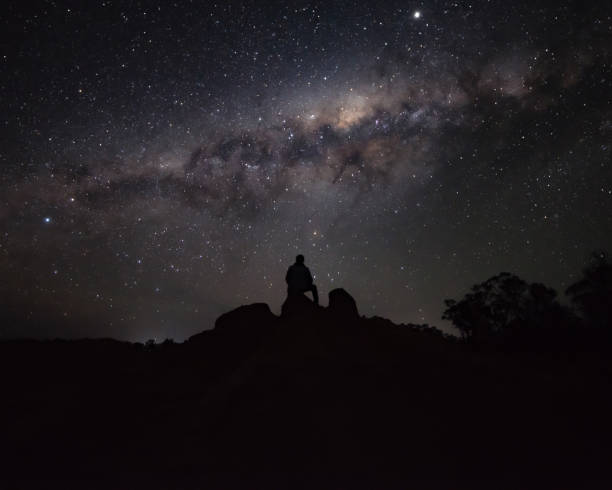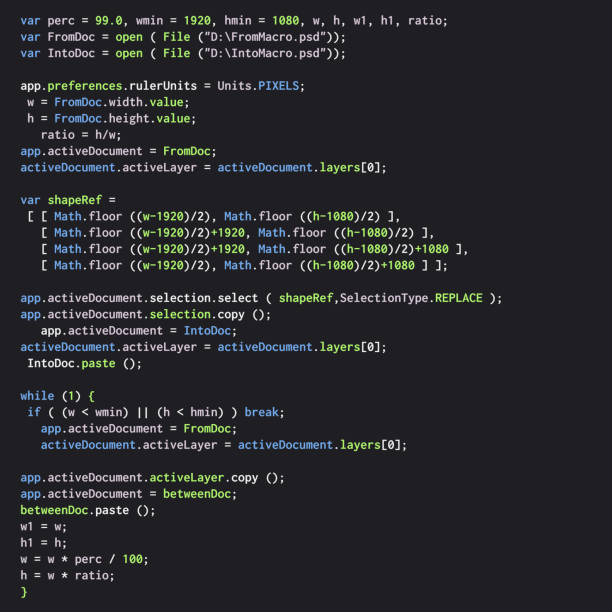From the earliest days of human awareness, when our ancestors gazed up at the night sky illuminated by stars beyond number, one question has haunted every generation: Why are we here? It is a question that cuts deeper than curiosity, reaching into the marrow of existence itself. To ask why we are here is to ask what it means to be human, to wonder whether life has a purpose or if we are the fleeting products of chance in a vast and indifferent universe.
Philosophers, poets, scientists, and spiritual leaders have all grappled with this mystery. Some see in it the hand of a creator, others the dance of atoms governed by blind physical laws. Yet even in our age of telescopes that peer to the edge of the cosmos and particle accelerators that probe the smallest constituents of matter, the question endures. Scientific knowledge has not silenced it but deepened its resonance.
The search for why we exist is not a luxury of leisure but a necessity of consciousness. To be aware of ourselves is to wonder about the grounds of that awareness. Unlike the other animals that share our planet, we look into the mirror of existence and demand an explanation.
The Cosmic Backdrop
To understand why we are here, we must first understand where “here” truly is. Our universe emerged nearly 13.8 billion years ago in the event we call the Big Bang. From a searing, incomprehensibly dense point of energy, space itself expanded, carrying with it the seeds of galaxies, stars, and planets.
For hundreds of millions of years, there was only hydrogen and helium, simple elements adrift in a darkening cosmos. Then gravity began its patient work, gathering clouds of gas into stars. These stars burned and fused, creating heavier elements—carbon, oxygen, iron. And when the most massive among them exploded as supernovae, they scattered these elements across space. It was in such violent deaths that the raw materials of life were forged. The calcium in our bones, the iron in our blood, the carbon in our cells—all were born in stellar furnaces.
Our own solar system coalesced about 4.5 billion years ago. Within the swirling disk of dust and gas, Earth took shape. It was not extraordinary at first glance—a rocky planet orbiting an average star. Yet it carried the right conditions: liquid water, a protective atmosphere, and a temperate climate. Here, amid chemical reactions in ancient oceans, life stirred into being.
Life’s Patient Struggle
The origin of life remains one of science’s most profound mysteries. How did simple molecules, obeying the laws of chemistry, assemble into systems capable of self-replication and evolution? Experiments suggest that under the conditions of early Earth, amino acids and other organic molecules could form spontaneously. From there, gradual complexity emerged: molecules that copied themselves imperfectly, subject to the refining hand of natural selection.
For billions of years, life remained microscopic, a hidden realm of single-celled organisms. But these tiny beings transformed the planet. Cyanobacteria released oxygen as a byproduct of photosynthesis, gradually filling the atmosphere with the gas that now sustains us. Life was not a passive tenant of Earth but an active shaper of its environment.
Eventually, cells learned to cooperate, forming multicellular organisms. From these, the endless branching tree of evolution spread outward: plants, fungi, animals. Each species was a different experiment in survival, honed by the relentless trial of adaptation. Dinosaurs ruled for eons, only to vanish in a cosmic catastrophe when an asteroid struck Earth. In their absence, mammals rose to prominence, and among them, a lineage of primates began a journey that would lead to us.
The Emergence of Human Consciousness
Humans are not separate from the evolutionary story; we are its latest chapter. Roughly 300,000 years ago, Homo sapiens appeared in Africa. At first, we were simply one species among many, sharing the world with Neanderthals, Denisovans, and other hominins. Yet something about our brains set us apart.
Our ancestors developed language, enabling them to share knowledge across generations. They painted on cave walls, burying their dead with care, signaling an awareness of life’s fragility and perhaps of an existence beyond it. They invented tools not just from necessity but from imagination, shaping objects to suit ideas.
Consciousness emerged not as an all-or-nothing phenomenon but as a gradual flowering. At some point, our self-awareness became undeniable: we could reflect on ourselves, anticipate the future, and ask the unanswerable. In that moment, the question “Why are we here?” was born in human minds. It was not a scientific puzzle alone but a cry of identity, a longing for significance.
Science and the Search for Meaning
Modern science offers powerful insights into how we came to be, but it is often accused of being silent on the question of why. Physics can describe the expansion of the universe, biology can explain evolution, and neuroscience can probe the mechanisms of thought, but purpose is not written in equations.
Yet to dismiss science as irrelevant to the question of why we are here is to misunderstand its gift. Science reveals that our existence is the product of natural laws, not supernatural fiat. We are made of stardust, animated by chemical processes, shaped by billions of years of evolution. Far from stripping life of meaning, this knowledge connects us more deeply to the universe. We are not outsiders gazing at creation but participants woven into its very fabric.
Physics suggests that the conditions of our universe are finely tuned for life. If the strength of gravity or the ratio of fundamental forces were slightly different, stars might never have formed, or chemistry might not sustain complexity. Some interpret this “fine-tuning” as evidence of design, while others see it as a consequence of countless universes in a multiverse, with ours simply being one in which life is possible.
Whatever the ultimate explanation, the scientific perspective reminds us that life is fragile and improbable, a precious spark amid cosmic vastness. The question of why we are here cannot be separated from the awe that we are here at all.
Philosophical Perspectives on Existence
Philosophy approaches the question from another angle, probing not the mechanics but the meaning of existence. Some traditions, such as existentialism, argue that life has no inherent purpose. Thinkers like Jean-Paul Sartre declared that humans are “condemned to be free,” forced to invent meaning in an indifferent universe. This view, far from despairing, emphasizes the responsibility and creativity of human beings to shape their own destiny.
Other philosophies see purpose as rooted in harmony. In Eastern traditions such as Buddhism and Taoism, the question of why we are here is reframed: the goal is not to impose meaning but to awaken to reality as it is. Life’s value lies not in external justification but in the immediacy of experience and the practice of compassion.
Religious philosophies, meanwhile, ground purpose in the divine. Christianity, Islam, Judaism, and other faiths teach that humans exist by the will of a creator, tasked with stewardship, morality, or spiritual growth. For billions of people, such frameworks provide not only answers but profound hope.
The Psychological Drive for Meaning
Why do humans crave purpose so intensely? Psychology offers an explanation: meaning is essential to our mental well-being. Studies show that individuals who feel their lives have purpose are more resilient, healthier, and happier. Purpose binds us together, fostering cooperation and community. It motivates us to endure hardship and to strive for goals beyond immediate survival.
The absence of meaning, conversely, breeds despair. When people feel their lives lack significance, they are more vulnerable to depression, anxiety, and destructive behavior. In this sense, the search for why we are here is not an abstract luxury but a necessity for thriving as individuals and as societies.
Meaning arises not from cosmic decree but from human connection and creativity. We find purpose in love, in raising children, in pursuing knowledge, in acts of kindness, in building art and culture. Each of these expressions testifies to the fact that we are meaning-making beings, and in making meaning, we affirm our existence.
Our Place in the Cosmos
To ask why we are here is also to ask what role we play in the unfolding story of the universe. On a cosmic scale, we are small—inhabitants of a fragile planet orbiting an ordinary star in one galaxy among trillions. Yet our capacity for thought makes us extraordinary. The atoms that once drifted in ancient stars have coalesced into beings capable of contemplating the stars themselves.
This self-awareness is not trivial. It allows us to become stewards of our planet, to imagine futures that extend beyond our lifespans, to explore worlds beyond Earth. Our presence may be brief in cosmic terms, but it is significant in ways that transcend measurement.
We are here because the universe, through a long chain of events, became conscious of itself in us. To look at the night sky and wonder is to fulfill one of the deepest potentials of matter and energy. The universe gave rise to beings who could ask why, and in asking, we give the universe meaning.
Facing the Future
The question of why we are here takes on new urgency in the face of the challenges that define our era. Climate change, nuclear weapons, pandemics, and technological upheaval remind us that our existence is precarious. We cannot assume our survival is guaranteed.
Yet this awareness also grants us responsibility. We have the capacity to destroy, but also to preserve, to build a future in which life continues to flourish. If there is a purpose to humanity, perhaps it lies in this responsibility: to care for our fragile world and to extend the story of consciousness further into time.
Science, philosophy, and spirituality all converge on one truth: our existence is rare, precious, and unfinished. Why we are here may never be answered with final certainty, but the very act of asking shapes who we are and guides what we must become.
The Mystery That Endures
Ultimately, the question of why we are here is not one that admits a single, final answer. It is a horizon we approach but never reach, a mystery that beckons us forward. The search itself is part of what makes us human.
Einstein once remarked that “the eternal mystery of the world is its comprehensibility.” To live is to dwell in that mystery, to embrace both the clarity we gain and the questions that remain. In our quest for meaning, we reveal not just the nature of the cosmos but the nature of ourselves.
Perhaps the most profound answer is this: we are here to ask. We are here to wonder, to create, to love, to struggle, and to hope. We are here because the universe, in its vastness, has produced beings who can look upon it with awe. That awe is not a conclusion but an invitation—to live fully, to seek truth, and to honor the fragile miracle of being alive.






